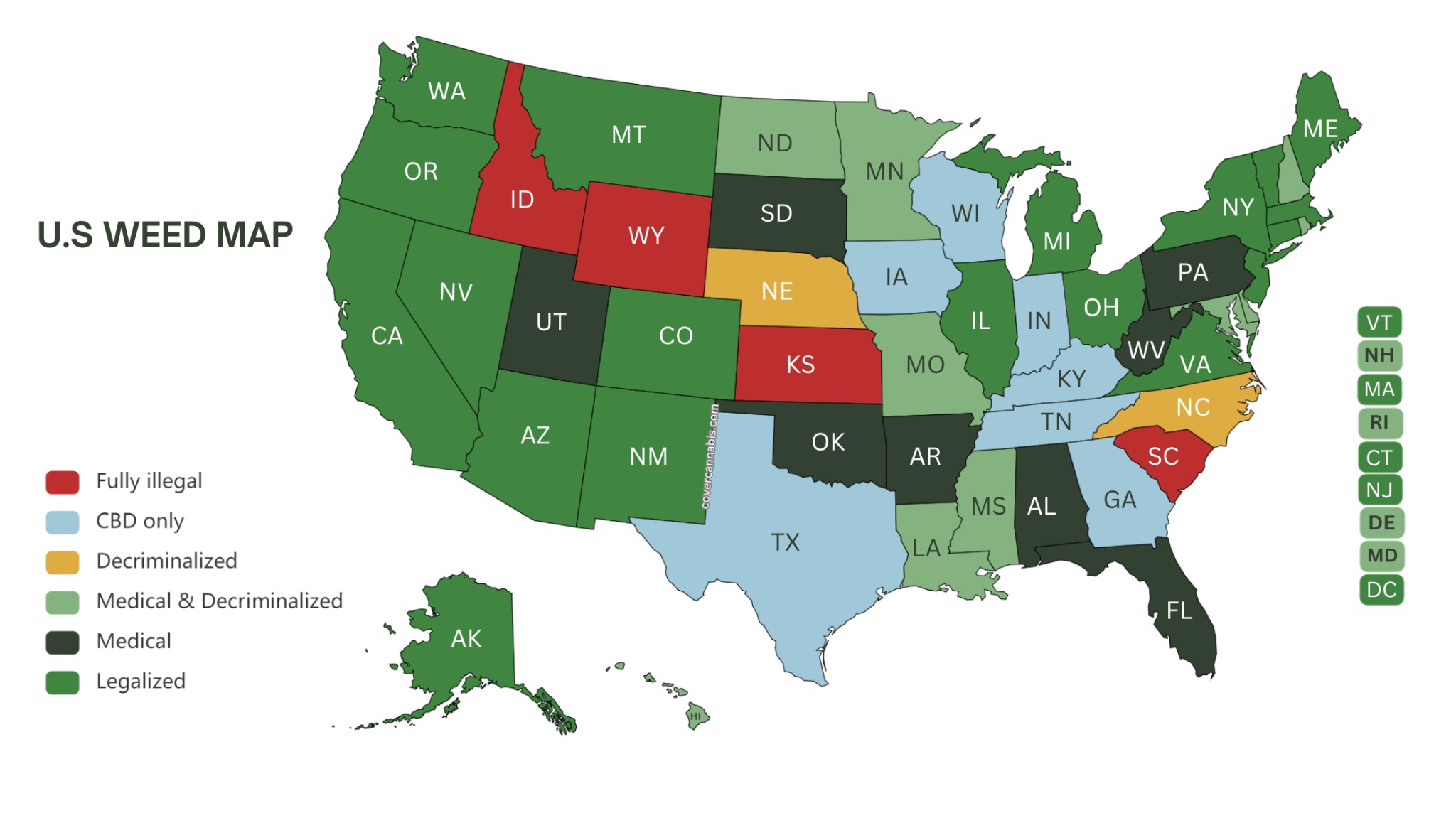


We’ve pruned the complexities to bring you a simple, sunny spot in the garden: a clear-cut article on where recreational weed is legal in the US. No thorny legal terms, no bewildering state-by-state breakdowns—just the straightforward facts you need. Whether you’re a small business owner or just plain curious, our article is your go-to guide for understanding the legal landscape of recreational marijuana, without the headache. So kick back, relax, and let us light the way to clarity.
As of April 2024, recreational cannabis is legal in 24 states and Washington, D.C. This signifies a growing acceptance of cannabis use across nearly half of the country. The states that have embraced legalization often feature a mix of established markets and newer entrants into the legal cannabis scene.
As of the latest update, the following states have legalized recreational weed, recreational cannabis and/or recreational marijuana in the United States:
Additionally, recreational weed is also legal in Washington, D.C.1.
In states like Oregon and Colorado, which were among the first to legalize recreational marijuana, the industry has matured, offering a wide range of products and retail experiences. Newer states to join the legalization movement include Rhode Island and Connecticut, with laws that went into effect recently, broadening the scope of legal use and sales across the country (DISA) (Yahoo News – Latest News & Headlines) (World Population Review).
Legalization typically allows individuals aged 21 and over to purchase and possess marijuana up to certain limits. For example, in Michigan, adults can possess up to 2.5 ounces of marijuana in public and grow up to 12 plants for personal use (World Population Review). Meanwhile, states like Rhode Island permit possession of one ounce in public and up to ten ounces at home (The Cannigma).

California started allowing medical weed in 1996. After that, 40 states and Washington, D.C. have allowed it for health reasons. For personal use, 24.
Consumers in these states enjoy access to a variety of cannabis products, including flowers, edibles, concentrates, and topicals. Both recreational and medical dispensaries are available, with some states offering dual-licensed shops that cater to both consumer bases. It’s important to note that while recreational and medical products are similar, medical dispensaries might offer additional benefits like tax breaks or higher potency limits for patients (Leafly).
The expansion of legal recreational cannabis opens significant opportunities for businesses, ranging from cultivation and manufacturing to retail and ancillary services. As states regulate and expand their markets, businesses can tap into a growing customer base while navigating compliance with state laws.
When it comes to marijuana industry insurance for SMBs, there are several limitations and risks to consider:
It’s essential for businesses in the marijuana industry to stay informed about the latest legal and regulatory developments and to work with insurance providers who understand the unique challenges of the industry. A proactive approach to risk management and compliance can help mitigate some of these risks. We can definitely help you with that.
For businesses involved in the cannabis industry, understanding and managing risks is crucial. Cover Cannabis specializes in providing tailored insurance solutions for cannabis operations. Whether you operate a dispensary, a cultivation facility, or any other cannabis-related business, having the right insurance coverage is essential to protect against potential liabilities and ensure business continuity.
Cover Cannabis offers a range of insurance services, including General Liability Insurance and Workers’ Compensation Insurance. These services are designed to address the unique challenges faced by businesses in the cannabis industry, ensuring they can operate safely and confidently amid the legal landscape of 2024.